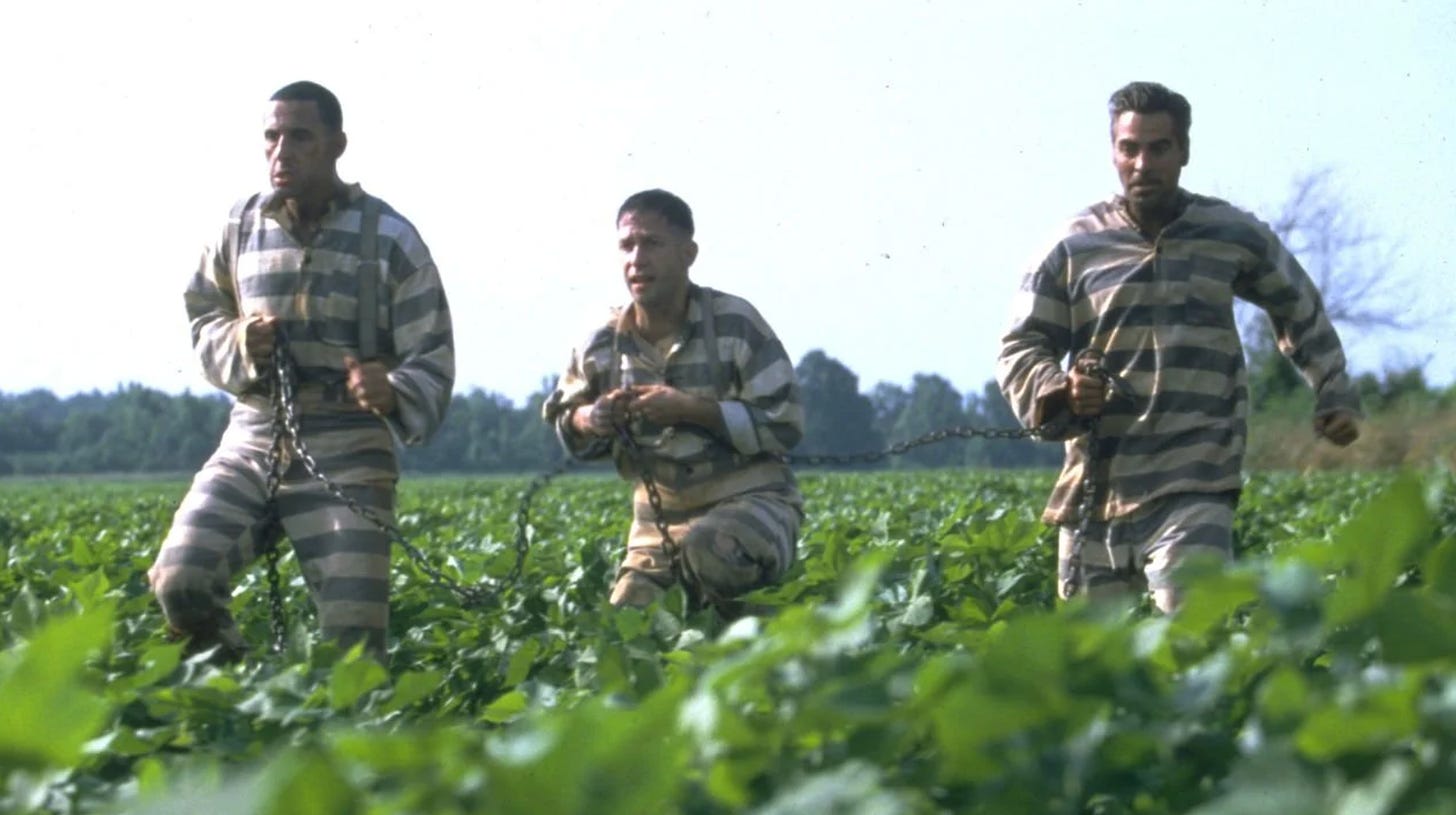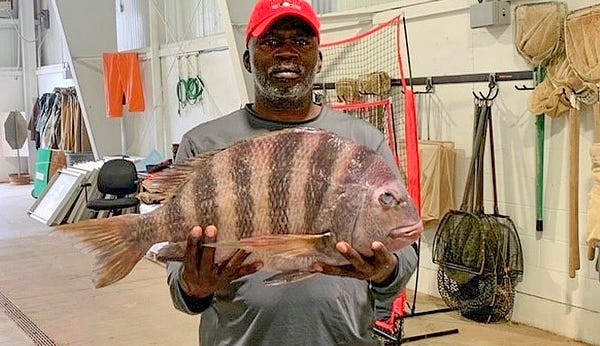Convict fish and Land Cats: A story of Georgia's ghost towns
Join us for a journey to discover ... well, not much, but let's go anyway
Welcome to Flashlight & A Biscuit, my Southern culture/sports/music/food offshoot of my work at Yahoo Sports. Thanks for reading, and if you’re new around here, why not subscribe? It’s free and all.
Way back in 1945, my great-uncle started a heavy equipment repair and handling business out of his garage on the south side of Richmond, Virginia. By the time I came along, the business had grown to include multiple other family members. (It’s still thriving to this day!) Whenever I visited the old garage, which was separated from my grandmother’s house by a 75-yard-wide stand of pine trees, my grandfather would hand me and my brothers a few old machine parts — control panels, switches, dials, assorted other mechanical what-nots — and send us off into the woods to play with ‘em.
In those pines, we cleared out a 10-foot circle and lined up all the unidentifiable gizmos like we were creating our own little mission control. Every time we visited, we’d check on those parts, adding more to the circle each year, until the undergrowth rose up and the forest got too thick to traverse. All those parts are still out there in those woods to this day, though, and I hope some future archaeologist stumbles upon them and believes they’ve located the remnants of an ultra-secret military base … because, after all, that’s what we created it to be.
I love the idea of ghost towns, once-thriving communities now gone silent and empty. Part of that no doubt is left over from a childhood spent watching Scooby-Doo cartoons — ghost towns gotta be filled with ghosts, right? — but part of it’s a fascination with what remains from ages past. I would’ve been an archaeologist if I had the patience; I’d be the guy shattering priceless ancient artifacts because I decided to use a leafblower rather than a toothbrush to clear away the dirt faster.
Anyway, I got back on the ghost-town kick kick because I saw the following tweet from the USA Today blog offshoot “For The Win”1 this week:
“Angler lands record-tying convict fish near Georgia ghost town” is a strong-ass headline, folks. First off, the convict fish — technically called Archosargus probatocephalus, but you knew that already — came in at 15 pounds, a state record but way off the world record, a mutant 21-pounder caught near New Orleans in 2002. Angler Ben Golden caught the above beast using an oyster as bait. Hopefully with a bit of tabasco and horseradish, too.
Second, are we sure that “convict fish” isn’t an actual convict in disguise? Hell, just this week a dude tried to escape a Bolivian prison by dressing as a sheep. Can’t ignore the possibility, is all I’m saying.
Third, the key here is the last two words: “ghost town.” The phrasing makes it seem like he was fishing in some ruined hellscape straight out of “The Last of Us,” but the truth is that the lost town of Sunbury, Georgia is just one of dozens in the state — and thousands around the country — that’s vanished for one reason or another over the years. In Georgia, some were buried when rivers were dammed to create lakes, some were abandoned when major roadways ran through nearby towns instead, and some were absorbed whole into their growing brethren. Sunbury got the full Apocalypse Combo Platter — starved out by the British in the War of 1812, hit by two hurricanes and yellow fever, and finally burnt to the ground by Sherman on his March to the Sea.
A Wikipedia list of Georgia ghost towns — damn, there really is a Wikipedia list for everything — turns up some wild little facts. There are towns that should’ve survived based on their classic-sounding names alone (Jamestown, Franklinville, Olympia), towns where somebody just got lazy in the naming process (Walnut, Cement, Recovery, Due), towns whose evocative names deserved more love (Socrates, Oketeyeconne, Conasauga) and towns with names probably better off lost to history (Willie, Zirkle, Eelbeck).
And then there’s Laingkat, a ghost town way down by the Florida border. Laingkat was apparently named after Langkat, a town in Sumatra that was the origin of the tobacco grown in that part of Georgia. Of course, Georgia accents being what they are, Laingkat eventually became “Land Cat” before vanishing entirely.
I love the idea of a town named Land Cat. First, “Land Cat” implies the existence of “Air Cat” and “Sea Cat,” which is an awesome thought. Second, how great would it be to say you’re from Land Cat, Georgia? I might start doing that anyway. Not like anyone’s going to be able to stop me.
Chances are that most of the cities that are standing now will be around for a few more centuries. Still, it’d be fascinating to see what of this era survives for a hundred or a thousand years. Even assuming there isn’t an electromagnetic event to wipe clean all the world’s digital archives, it’ll get tougher and tougher to convert digital tech of days gone by into a readable format. (I’ve got a drawer full of my writing in WordPerfect, saved on floppy disks, that I really should’ve converted or printed out back in the ‘90s.) It’s highly possible that what survives from today will be mostly physical media — books, film, vinyl records — and digital media (like this newsletter!) will vanish into the cloud. In that case, historians of the future will have no choice but to regard Gen X as this era’s final relevant generation … and, of course, they’d be right.
Thanks for hanging, friends. See you next week!
—Jay
Land Cat, Georgia, Feb. 18, 2023
This is issue #93 of Flashlight & A Biscuit. Check out all the past issues right here. Feel free to email me with your thoughts, tips and advice. If you’re new around here, jump right to our most-read stories, or check out some of our recent hits:
Moonshine! Murder! The thrilling conclusion of the three-part “Hellfire & White Lightning” series
Did Dolly Parton really write “Jolene” and “I Will Always Love You” on the same day?
Wienerman and the Great West Virginia Hot Dog Heist
What does “Flashlight & A Biscuit” mean, anyway?
And load up a to-go box before you leave:
If you dig this newsletter, share it with your friends. Invite others to the party, everyone’s welcome.
Blogs. The phrase “for the win.” Man, the early 2010s were awesome.







